Finding the perfect canine companion can be a joyful experience, but for many, the prospect of constant dog hair accumulation is a significant deterrent. If you’re dreaming of a small dog that fits into your life without leaving a trail of fur, you’re in for a treat. This guide delves into an array of charming, petite dog breeds known for their minimal to non-existent shedding, perfect for allergy sufferers and neat-freaks alike. From the spirited Affenpinscher to the elegant Yorkshire Terrier, discover breeds that offer companionship without the fuss of excessive grooming.
For those seeking furry friends that are as tidy as they are lovable, exploring breeds that naturally shed very little is key. This not only simplifies household chores but can also make living with a dog a more comfortable experience, especially for individuals with sensitivities. Understanding the unique characteristics of each breed will help you find a dog that not only stays small but also harmonizes with your lifestyle and home environment.
The following breeds are renowned for their low-shedding coats, making them excellent choices for a cleaner, hair-free home. These dogs often require consistent grooming to maintain their coat health and appearance, but the reward is a beautiful, hypoallergenic companion. Let’s explore the world of small dog breeds that stay small and don’t shed.
Affenpinscher: The “Monkey-Like Terrier”
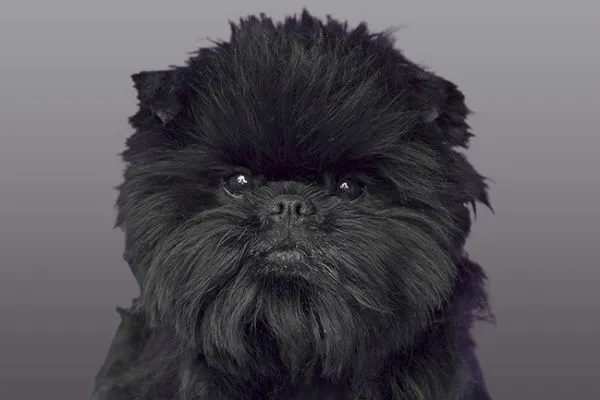 affenpinscher
affenpinscher
The Affenpinscher, a name translating to “monkey-like terrier,” truly embodies its moniker with its intelligent expression and distinctive appearance. Despite its diminutive stature, this Toy breed possesses a fearless spirit, making it an excellent guardian of your home. You can rest assured that with an Affenpinscher on duty, unexpected visitors won’t go unnoticed, and stray dog hairs in your meals will be a thing of the past. The breed’s wiry coat sheds minimally and is also remarkably free of that characteristic “doggy odor.” A simple twice-weekly brushing with a slicker brush and comb is sufficient to maintain its shaggy yet neat look. This low-maintenance canine is also celebrated for its delightful sense of humor, adding joy and laughter to any household.
Basenji: The African Barkless Wonder
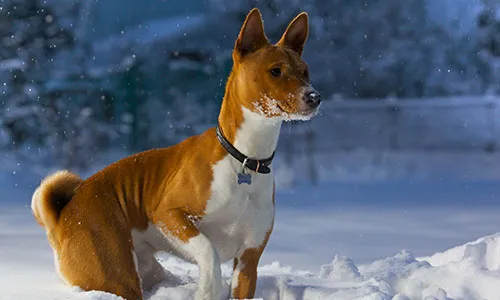 basenji
basenji
For those who admire the noble nature of hounds but wish to avoid their typical shedding and distinctive odors, the Basenji emerges as a compelling option. This small dog breed sheds very little, and its short, fine coat requires minimal upkeep beyond occasional brushing. Basenjis are famously quiet, often described as “barkless” due to their unique vocalizations, which makes them an ideal breed for apartment living, provided they receive adequate daily exercise and playtime. Their self-grooming habits, similar to cats, further contribute to their tidiness.
Bichon Frise: The Fluffy Companion
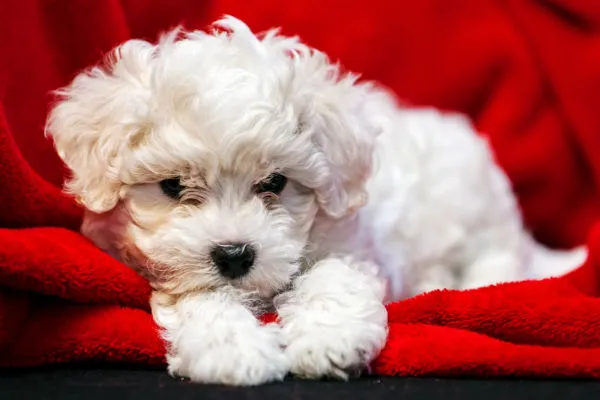 bichon frise
bichon frise
The Bichon Frise is a true gem in the realm of non-shedding small dog breeds. These playful and affectionate dogs are an excellent choice for individuals with allergies, but it’s important to note that they are not maintenance-free. The Bichon Frise’s coat is continuously growing hair, necessitating frequent grooming, regular brushing, and occasional baths to maintain their signature “powder-puff” appearance. Their charming personality and hypoallergenic coat make the grooming commitment well worth it for many owners.
Bolognese: The Italian Lapdog
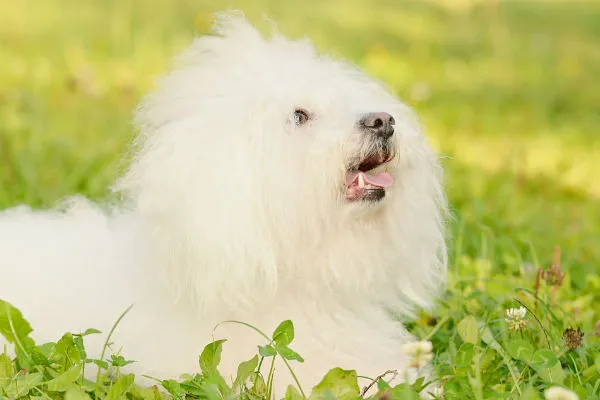 bolognese
bolognese
Similar to the Bichon Frise, the Bolognese boasts a distinctive fluffy coat composed of hair rather than fur. This delightful Italian breed does not shed, although any dead hair must be meticulously brushed out regularly. Daily grooming is essential to keep these lovable lap dogs looking their absolute best and to prevent matting. Their gentle nature and elegant appearance make them cherished companions.
Brussels Griffon: The Alert and Affectionate Pal
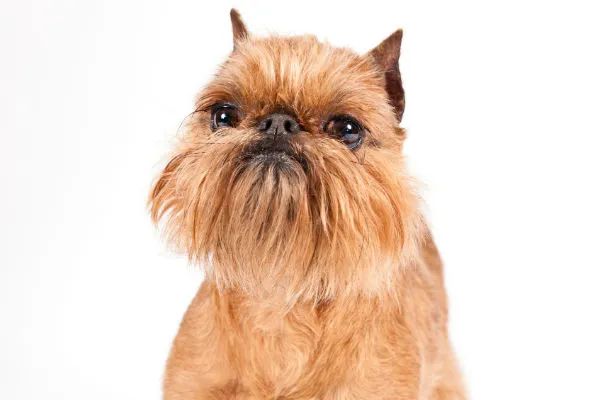 brussells griffon
brussells griffon
Don’t let its small size fool you; the Brussels Griffon is a robust and spirited dog that doesn’t require excessive pampering. Available in both smooth-coated and rough-coated varieties, Brussels Griffons thrive with consistent grooming and are minimal shedders. Their compact size means that a daily walk and some indoor play sessions are usually sufficient to meet their exercise needs. These loyal little dogs flourish in families where they receive ample attention and interaction, making them ideal for homes where someone is frequently present.
Chinese Crested: The Unique Hairless or Powderpuff
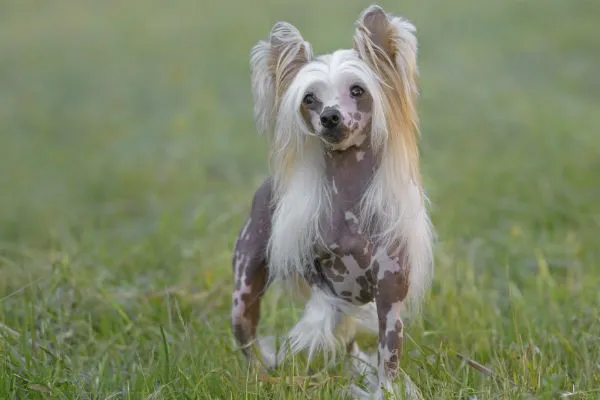 chinese crested
chinese crested
A unique approach to avoiding shedding is to opt for a hairless dog breed. The Chinese Crested comes in two coat types: the hairless variety, which has hair only on its head, tail, and feet, and the powderpuff, which is covered in a coat of fine hair that sheds very minimally. Hairless breeds, in particular, require extra attention to their skin, needing protection from the sun and cold, and are more susceptible to skin irritations. Their distinctive look and low-shedding qualities make them a fascinating choice for a small companion.
Coton de Tulear: The “Cotton Ball” Dog
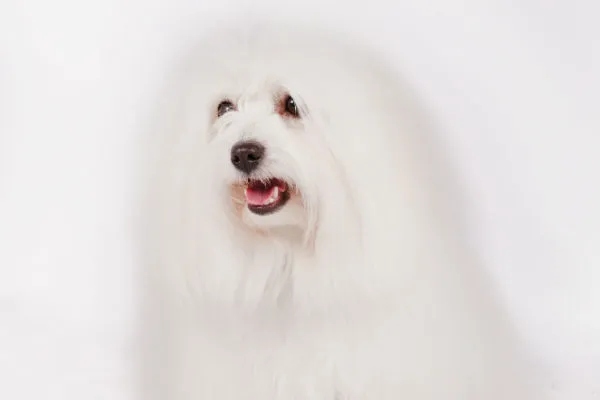 coton de tulear
coton de tulear
The Coton de Tulear is recognized for its distinctive, long, fluffy coat, which is considered hypoallergenic. This makes it an excellent choice for allergy sufferers and those seeking a small dog with minimal shedding. While Coton de Tulears require daily grooming to maintain their luxurious coats, their lighthearted and gentle temperaments make the grooming effort a rewarding experience. Their playful and affectionate nature endears them to owners.
Havanese: The Cuban Charmer
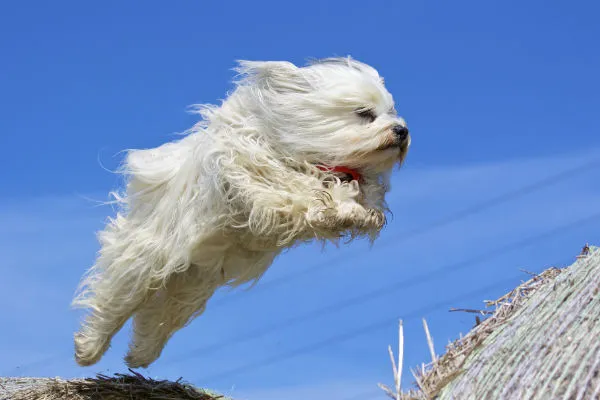 havanese
havanese
These native Cuban dogs offer their owners a captivating blend of spunky charm and a non-shedding coat. This means less time spent de-linting furniture and more time devoted to romping and playing with the joyful Havanese. Their coat requires weekly brushing and regular baths to keep them clean and healthy, ensuring their silky strands remain in top condition. Their intelligent and lively disposition makes them delightful companions.
Maltese: The Ancient Lapdog
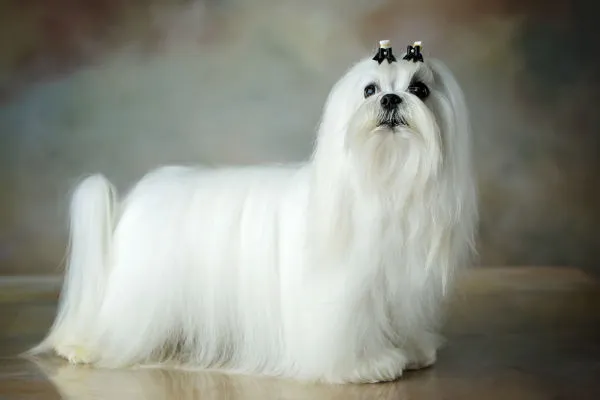 maltese
maltese
The Maltese has captivated humans for over three millennia, and this ancient breed from Malta has remained remarkably consistent. Their long, white coats shed very little, contributing to their status as an ideal lap dog. These coats do necessitate regular brushing to prevent tangles and mats from forming, and occasional baths are needed to remove any dirt or debris from their long, silky hair. Their gentle and loving nature makes them devoted companions.
Lhasa Apso: The Tibetan Sentinel
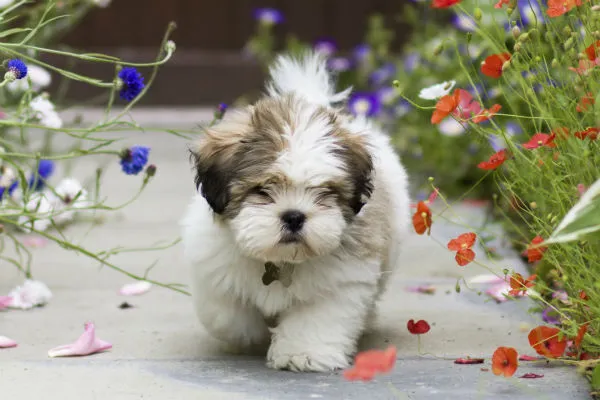 lhasa apso
lhasa apso
Originating from Tibet, this small dog breed serves as an excellent companion. The Lhasa Apso is known for being calm yet playful, enjoying both brisk walks and restful periods on their owner’s lap. Lhasa Apsos do not shed, but their abundant coats require dedicated maintenance. Many owners opt to keep their Lhasa Apsos clipped in a “puppy cut” to simplify daily grooming and brushing of their long hair, making them a more manageable breed for some households.
Miniature Schnauzer: The Energetic Terrier
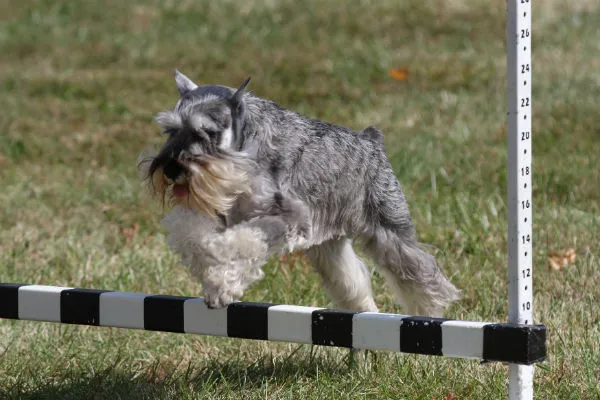 miniature schnauzer
miniature schnauzer
The Miniature Schnauzer is a smart, trainable, and cheerful little dog that bears a strong resemblance to its Standard Schnauzer cousin. This Terrier breed sheds very little, and their adaptability allows them to thrive equally well in urban or rural settings, as long as they have their people close by. To ensure Miniature Schnauzers look their best, incorporate weekly brushing and regular grooming into their routine. Their spirited nature and low-shedding coat make them a popular choice.
Poodle: The Intelligent and Hypoallergenic Choice
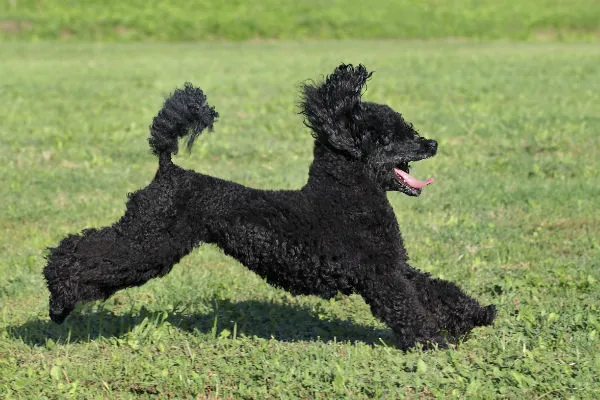 poodle
poodle
When discussing small dogs that don’t shed, the Poodle is often the first breed that comes to mind, and for good reason. Poodles are renowned for being non-shedding and hypoallergenic. Miniature and Toy Poodles offer these sought-after qualities in intelligent, petite packages that differ from their Standard Poodle counterparts primarily in size. All Poodles are highly intelligent, making them remarkably easy to train. They are an active and proud breed, and their curly coat requires regular professional grooming to prevent matting and maintain its distinctive appearance.
Scottish Terrier: The Bold Companion
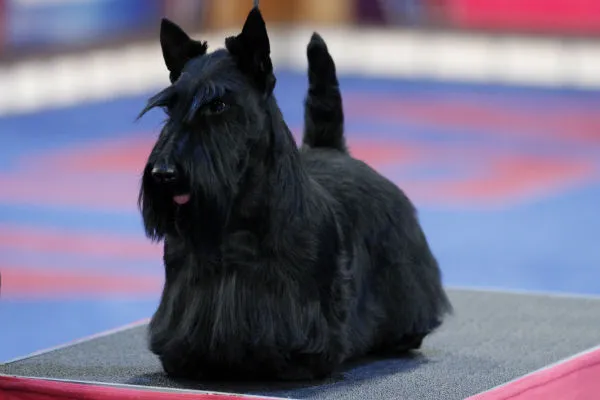 scottish terrier
scottish terrier
The Scottish Terrier, affectionately known as the Scottie, is a Terrier breed celebrated for its boldness, confidence, and significant personality. Their wiry, weather-resistant coat sheds very little, though they do require regular brushing, grooming, and occasional hand-stripping to maintain coat health and the breed’s characteristic silhouette. Scotties are intelligent and independent dogs with strong prey drives, which necessitates caution around smaller animals. Their distinctive look and low-shedding coat make them a unique and engaging companion.
Shih Tzu: The “Little Lion Dog”
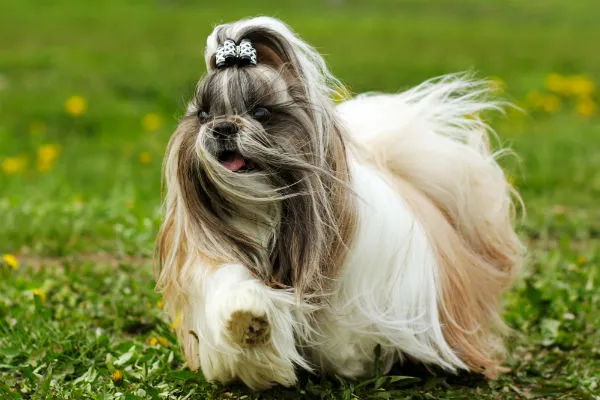 shitzhu
shitzhu
The Shih Tzu boasts a long and esteemed pedigree, having been favored as a house pet by Chinese royalty for centuries. These “little lion dogs” come in a variety of colors and patterns. Their long, silky hair is very low-shedding and appears exceptionally regal when brushed out, befitting their royal ancestry. This Toy breed is sturdy and lively, often exhibiting a carriage described as proud, thanks to their held-high heads and curling tails. Shih Tzus were originally bred as house pets, and their gentle, trusting nature makes them exceptional companions.
West Highland White Terrier: The Cheerful Westie
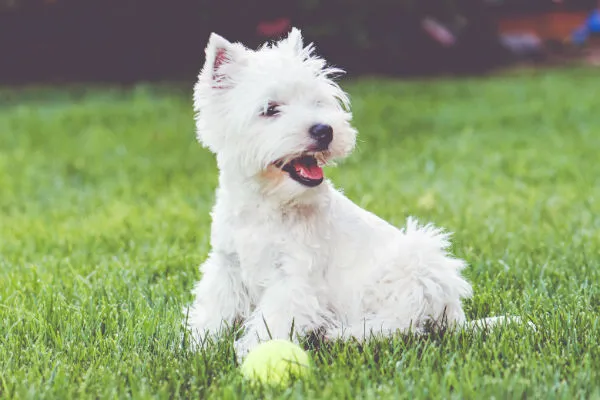 west highland terrier
west highland terrier
The coarse, white hair of the West Highland White Terrier, fondly called Westies by fans of the breed, sheds very little. This sturdy little dog is intelligent, loyal, happy, and highly entertaining. They are curious dogs with moderate energy levels and an independent streak common among Terriers, which can sometimes make training a challenge. Their charming personality and low-shedding coat make them beloved pets.
Xoloitzcuintli: The Ancient Mexican Hairless
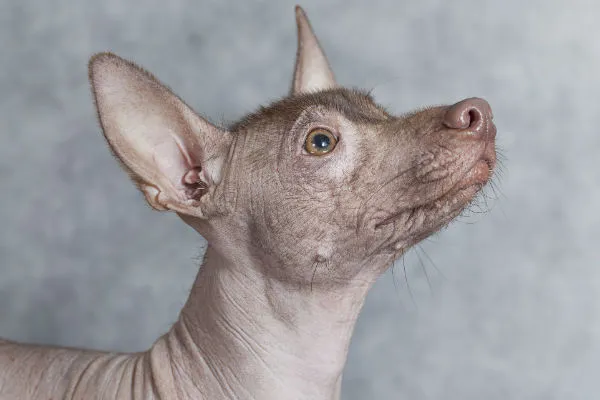 xolo
xolo
Also known as the Mexican Hairless, the Xoloitzcuintli is an ancient and rare breed that can be either hairless or coated. The hairless variety typically has a small amount of hair on its head, while the coated variety sports a very short, fine coat that sheds minimally. As with any hairless breed, the Xolo requires a bit of extra care for its skin to protect it from the elements. Xolos make attentive watchdogs and affectionate companions. While they enjoy physical activities like walks and vigorous play, they are particularly known for their tranquil and calm demeanor around the home.
Yorkshire Terrier: The Pocket-Sized Personality
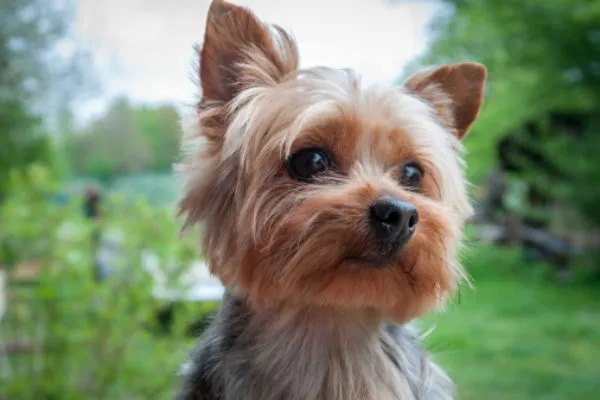 yorkie
yorkie
Sprightly, tomboyish, and affectionate, the Yorkshire Terrier, often called the Yorkie, is a Toy breed brimming with personality. These spunky lap dogs are a highly popular breed for good reason. Yorkshire Terriers do not shed, and their silky coats are stunning when brushed daily, a task made easy by their small size. Don’t be fooled by their regal carriage; Yorkies have working-class roots, having historically hunted rats in English clothing mills. Today, however, they are just as content to sit on their owner’s lap as they are to chase a rodent. Their non-shedding coat and confident attitude make them cherished companions.
Other Small Dog Breeds That Don’t Shed
The Terrier group, in particular, is a treasure trove of small dogs that shed minimally or not at all. Wiry- and coarse-haired Terriers tend to shed less than other breeds, positioning them as ideal small dogs for individuals who prefer to avoid excessive shedding. Beyond the breeds already detailed, consider exploring other non- or low-shedding Terrier breeds like the Miniature Schnauzer and the Scottish Terrier, both of which are excellent examples of this category.
Many small dog breeds offer the benefit of minimal shedding. However, it’s crucial to remember that even dogs with non-shedding coats still require consistent grooming and care. Taking the time to thoroughly research non-shedding dog breeds will help you find a canine companion that best suits your lifestyle, personality, and home environment. To ensure your dog remains healthy and happy, always source your pet from a reliable breeder, provide a high-quality diet, and schedule regular veterinary checkups.
Finding a small dog that stays small and doesn’t shed is achievable with the right knowledge and preparation. These breeds offer the joy of canine companionship without the overwhelming task of managing shedding hair, making them perfect additions to many households.
